
KINDERGARTEN - The Middle Section (1P Harmos)(from 4 to 5 years old)
Throughout the year, pupils continue to learn the basics of writing, reading and arithmetic.
Thanks to the exercises of the Bons-Points Box and the Papillon collection, the child consolidates visual gestures, enriches the notions of numbering and calculation and progressively becomes an autonomous and social student (learning to situate oneself in a group, developing memory and thinking skills).
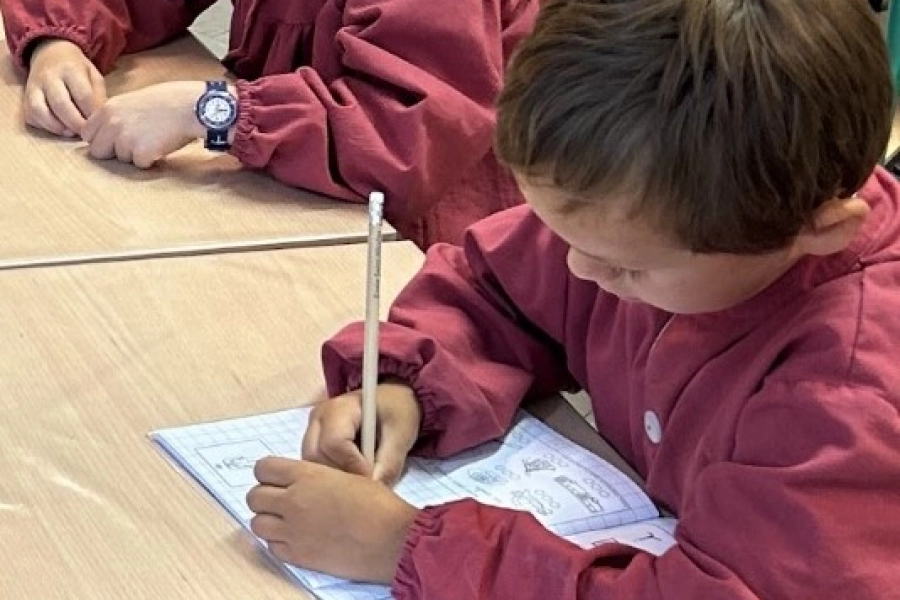
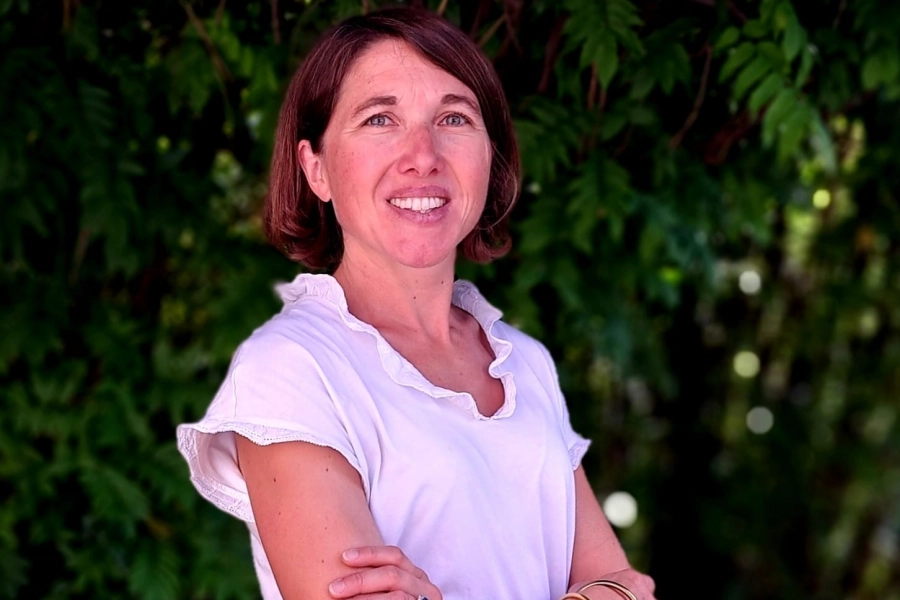
Free play is also important at this age because it allows for the development of imagination and peer interaction. The adult is there to encourage the children's interest, to offer an environment rich in experience, to regulate conflicts and to allow positive exchanges.
Early learning activities (science, art, lessons, etc.) are offered in the afternoons, mostly outdoors and in English.
Skills
Language and phonology
The enrichment of language and the improvement in the ability to express oneself with a varied and precise vocabulary, alone or in front of others is done through :
- Reading of offered stories
- More in-depth study of stories (words, feelings, images to be put in order...)
- Memorisation and recitation of rhymes and poems
- Listening games, rhythmic and musical instruments
- Games around words (articulations, sounds)
- Puppets: role playing, story invention.
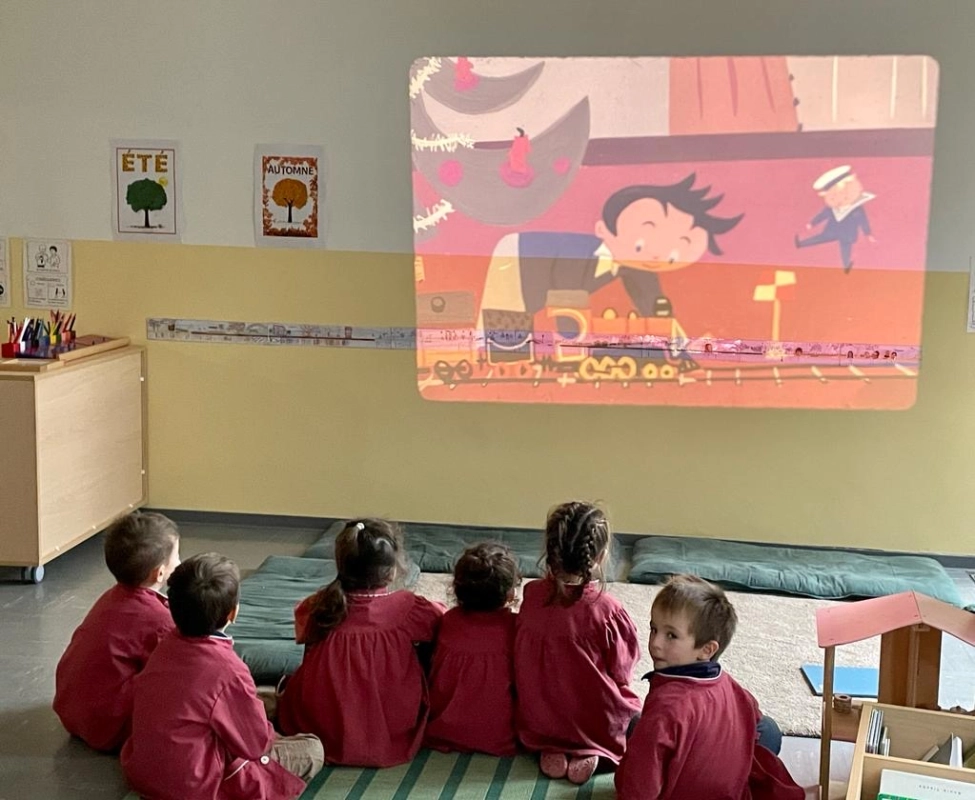
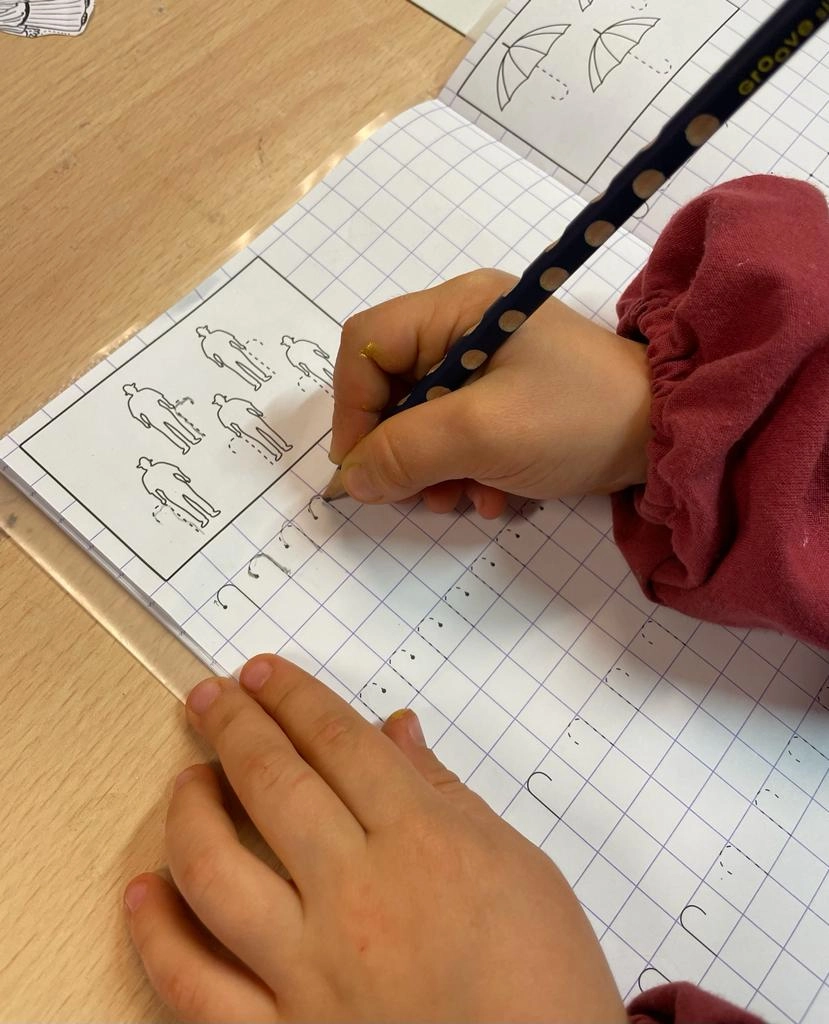
Graphic design
- Consolidation of preparatory gestures for writing learned in PS (vertical and horizontal lines, circles)
- Learning of oblique lines, broken lines, right-side up and upside down bridges, canes
- Recognition and tracing of flat shapes: square, rectangle, circle, triangle, oval
- Recognition of some solids: cube, block, ball, cone, cylinder
Mathematics
- Recognition of the written number and learning to write it
- Association with corresponding units, counting
- Understanding of larger and smaller quantities associated with numbers
- Beginning to add or subtract with manipulation (add/remove)
- Memorisation of the number sequence
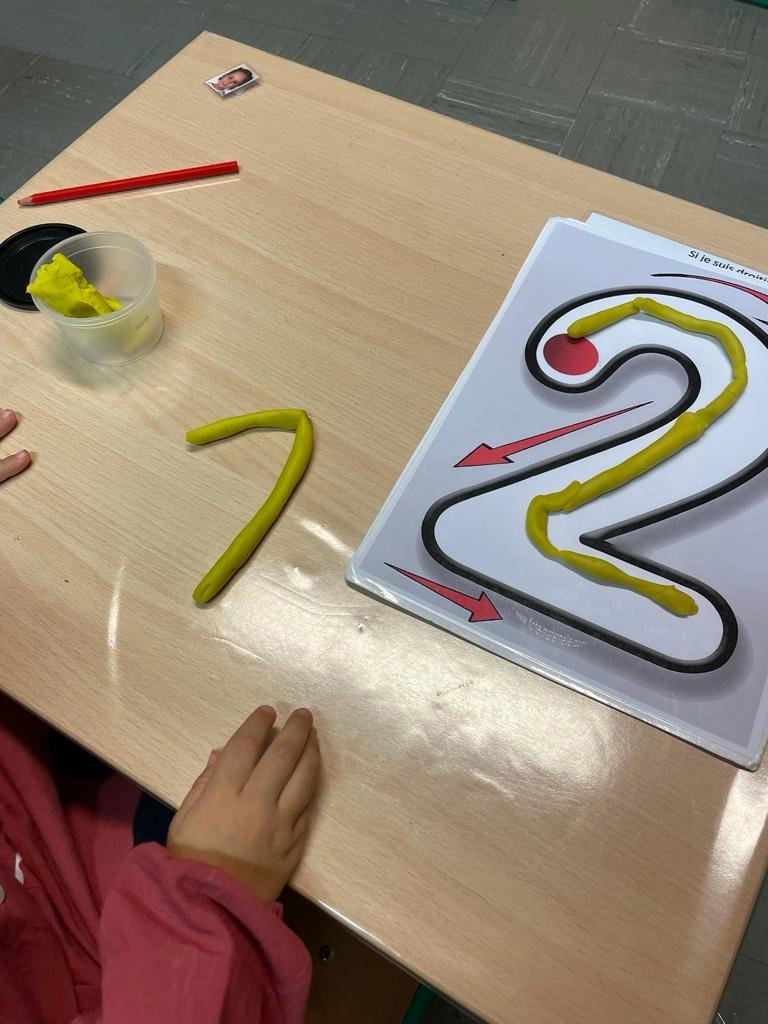
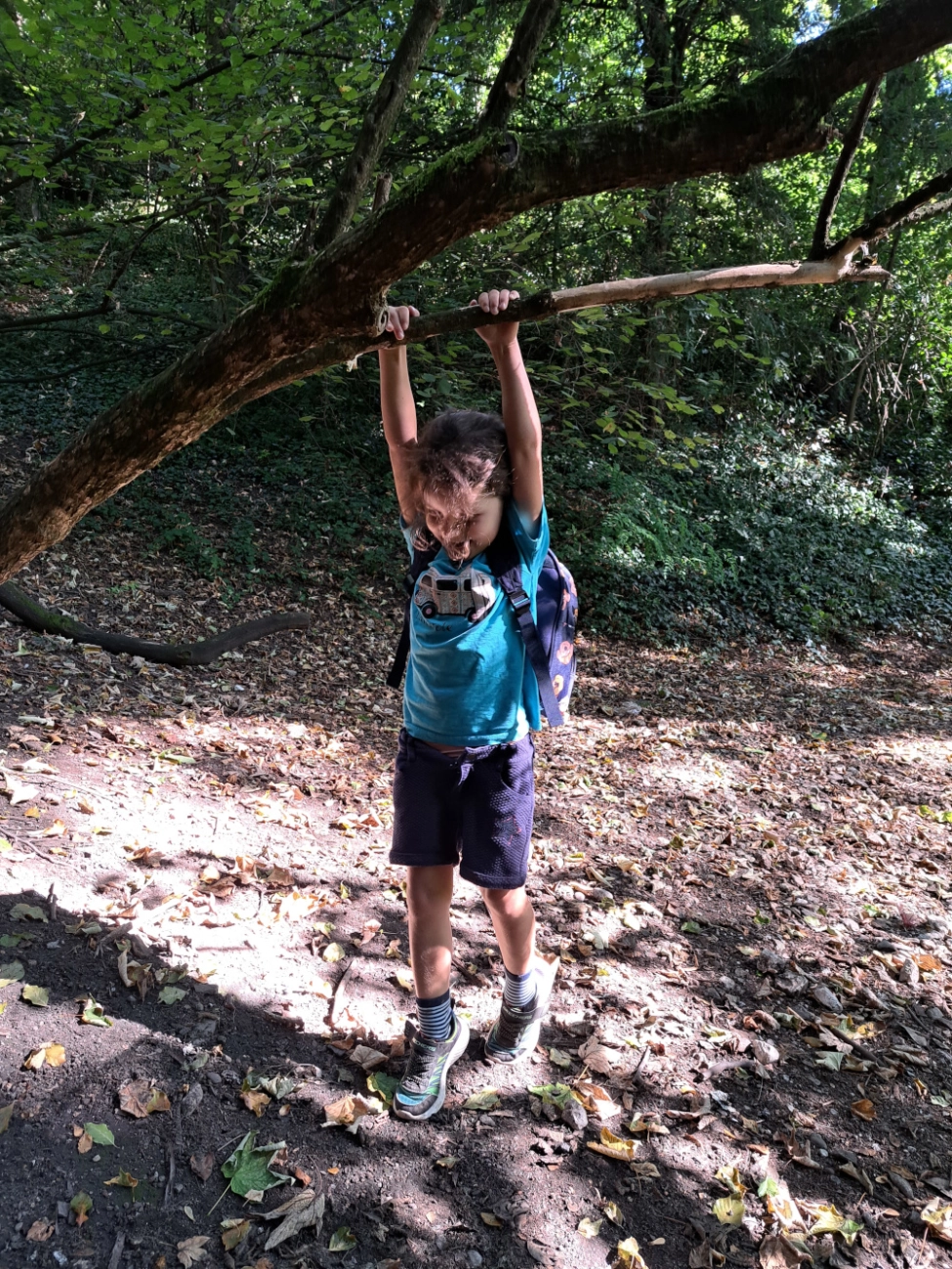
Motricity
Each week the students have psychomotor sessions where they work on
- Emotions (knowing/recognising/expressing)
- Body schema (knowing one's body, knowing how to name the different parts and becoming aware of one's sensations (through sensory exploration: touch/sight..)
- Global motor skills: to know how to control one's body and movements (balance/coordination/fine motor skills) through courses or manipulations
- Executive functions: attention/inhibition with games
- Space and time by setting up a space-time framework during the sessions.




